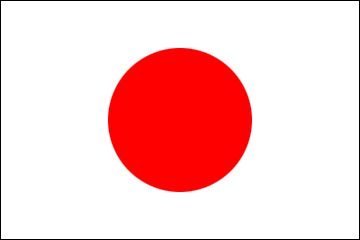Οι εμπειρίες του π. υποτρόφου MEXT κ. Κατσιμίχα
2019/4/3
Five years in paradise
Themistoklis Katsimichas
PhD in Cardiology, Graduate School of Medicine,
Osaka University
April 2013 – March 2018
PhD in Cardiology, Graduate School of Medicine,
Osaka University
April 2013 – March 2018
I left Greece for Japan on April 1, 2013 and returned exactly 5 years later. In the time I spent there, I graduated from Osaka University Graduate School of Medicine with a PhD in Cardiology, learned the language up to the N2 level, made long-lasting friendships, enjoyed a care-free student’s life and even got paid for it, and sampled a unique culture, far apart from the western world. Not bad, I guess.
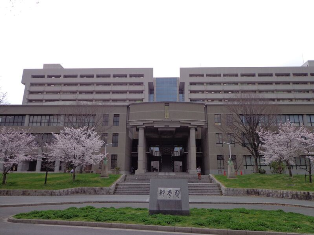 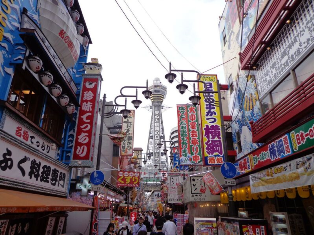 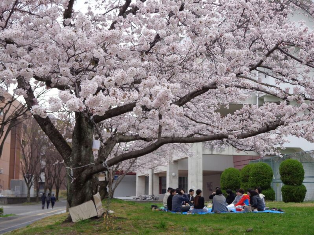 |
|
| The Medical School of Osaka University, The Shinsekai area in downtown Osaka Hanami or cherry blossom viewing is a must in Japan where I studied my PhD |
I didn’t really plan all this, actually. Back in 2011 or so, I was thinking of moving abroad to continue my medical training, and started considering my options. New Zealand (for work) or Japan (for research) seemed two pretty exotic opportunities, as I didn’t want to move to just another European country, and trying USA was not my cup of tea. I already knew of the MEXT scholarship program and decided to give it a try. Luckily, I was selected as a scholar and things were set in motion. With about a year of studying Japanese beforehand and a collection of options gathered through painstakingly contacting lots of Universities in Japan (one can get a list from the Embassy with all the Japanese Universities, contact details etc.), I found myself leaving for Osaka in April 2013.
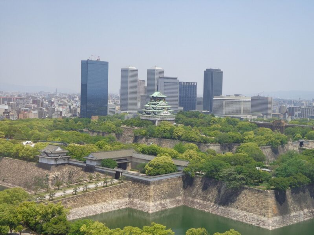 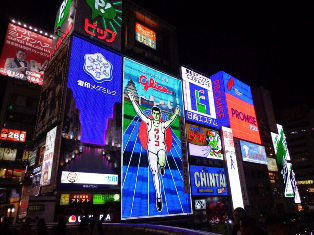 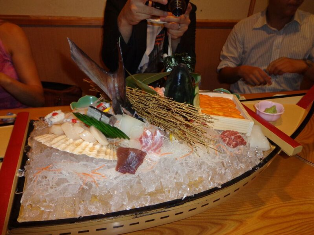 |
|
|
Osaka Castle The Glico Man, an Osaka landmark Eating sashimi
|
I arrived with minimal language skills, midway between N5 and N4, and the 6-month intensive language course at Osaka University didn’t do me much good either. Granted, I wasn’t the most attentive pupil. The culture shock, the care-free student’s life, the relationships I built with both Japanese and international students, the drive to explore the city and its offerings were all just too tempting to resist. Still, I tried to talk to locals as much as I could, made Japanese friends, got “adopted” by a Japanese family, and after about two years I had learned enough of the language to converse in a somewhat adequate capacity. My skills were not perfect, but by then I had improved to the point where it took me only about 5 months of actual study to pass the N2 exam. I got bored after that and didn’t try for the holy grail of language diplomas, the elusive N1. I kind of regret it now, I must say.
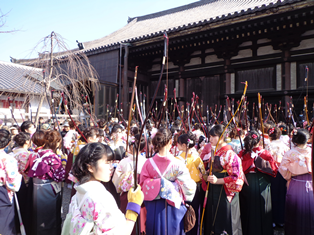 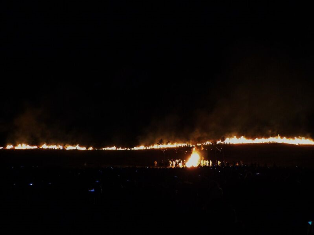 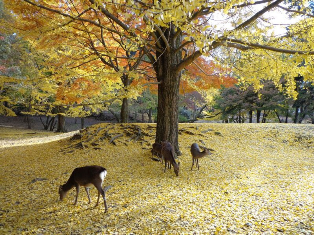 |
|
| Japanese archery (kyudo)on Coming of Age day The annual bonfire and burning of Autumn colors in Nara Park, at Sanjusangendo temple in Kyoto mountain (Wakakusa Yamayaki) in Nara where wild deers freely roam |
Back in 2013: I started my life as a research student in Medicine, in the prestigious Osaka University. In Japan, it doesn’t really matter what you study, so long as you do it at one of the top institutions. Do that and you have a guaranteed career in anything you would like to try. People I know have studied Arabic literature and landed IT jobs after graduation. That’s just how the system works, since, barring specialized professions, such as a medical doctor, most of the job training will actually take place within the company that will hire a graduate, not the University. A year later, I passed the entrance exam for the Graduate School of Medicine and embarked on a 4-year research course, that led to a PhD in Cardiology. My studies went smooth and all problems whatsoever were being solved in an instant, thanks to tremendous support from University staff. They do help with everything and one can really just focus on their research. At least, that was the case with me. But, to be honest, my PhD was not the point. Ultimately, it was the byproduct of the most amazing cultural experience I have ever had in my life.
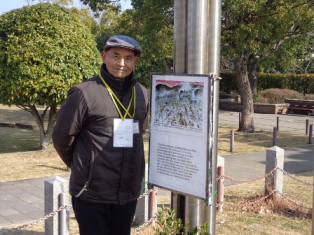 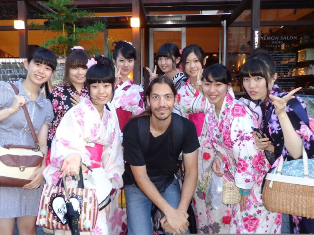 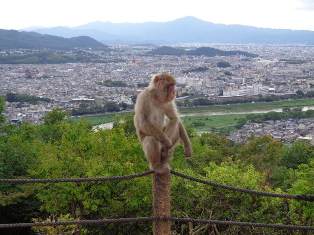
A survivor of the Nagasaki Bomb urging for Young Japanese girls in kimono Wild monkeys live in woods of
world peace every day at the Peace Park in Nagasaki during Gion Festival in Kyoto Arashiyama overlooking Kyoto |
It was the excuse to move to and live in Japan. A country where almost everything works like a clock, where safety and the lack of crime are as natural as the sun rising from the East, where people live and work by rules they have set themselves, in pursuit of social harmony. This tremendous contradiction with life in Greece, where “chaos” is the word describing much of everyday life, was, in the end, what fully captivated me. I felt I was born to live there. Had it not been for my clinical training in Cardiology, which I could not do in Japan because of the language barrier, I don’t think I would ever have returned.
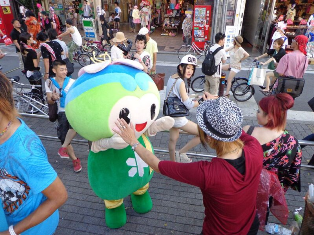 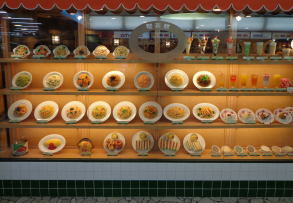 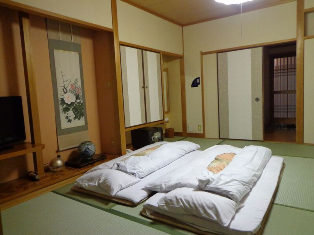
|
|
| In Japan, being kawaii is paramount Food models on display in restaurants are What rooms look like in Japanese traditional ubiquitous throughout Japan inns (ryokan) |
Experiencing the culture and travelling the land, along with enjoying the notorious Osaka nightlife, the exquisite Japanese cuisine, and the bonds I forged with a handful of Japanese and international friends, were the aspects of Japanese life that will truly last forever as fond memories. No, not everything is perfect. Depending on who you ask, Japan can be a radically different world. My Japan is not the same with what Chinese migrant workers may have to face in their short-term internship at a Japanese company. It is not the same with what the Japanese themselves think of their social and cultural norms. But to a Caucasian male who has a job, a purpose, and enough friendly connections, Japan is paradise on Earth. I got to sample all the positive sides of Japanese culture, was excused for almost any wrong doing by simply being a foreigner, and resided at the center of attention, full of gaijin power, like an exotic fruit that everyone wanted to taste. I am grateful I had the privilege of living this life for 5 years.
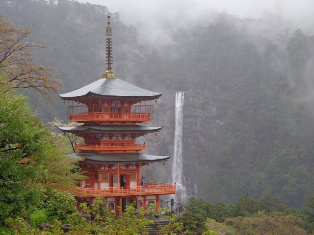 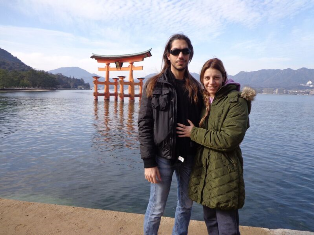 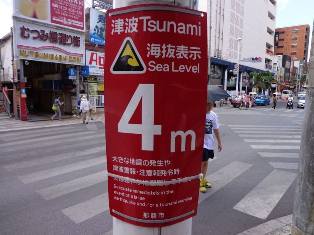 |
|
| The most scenic pagoda in Japan, parts of Kumano Visiting Itsukushima shrine in Hiroshima Tsunami are a real threat in Okinawa Nachi Taisha in the Kii mountains of Wakayama bay with my wife |
